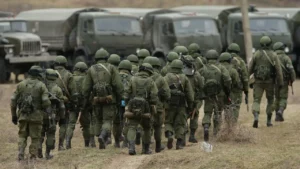Niger is advancing its autonomy in foreign policy by integrating Russian military trainers, marking a significant shift in its security alliances, and enhancing its national sovereignty.
This move came shortly after Niger ended a critical agreement with the United States that permitted American military and drone operations on its territory.
The termination followed warnings from a U.S. delegation against Niger’s cooperation with Russia and Iran, perceived as patronizing by the Nigerien government.

This event underscored Niger’s intent to reshape its international relations and lessen its dependence on traditional Western powers.
The decision to engage with Russia also aligns with a wider regional disapproval of French military involvement.
Russia’s Growing Influence in the Sahel Region
Russia’s influence in the Sahel is growing, extending its reach not only in Niger but also in Mali, Burkina Faso, and potentially Chad and Sudan.
Analysts view this as a strategic move by Russia to cement a substantial geopolitical stance in the region.
This strategic pivot towards Russia by Niger and other Sahel countries signifies a profound transformation in the region’s global affiliations.
It reflects these nations’ increasing desire for more control over their security and foreign policies.
This realignment occurs amidst the backdrop of ongoing challenges, including jihadist insurgencies and complex political dynamics.
It underscores a push for greater regional autonomy and a redefined approach to international engagements.

